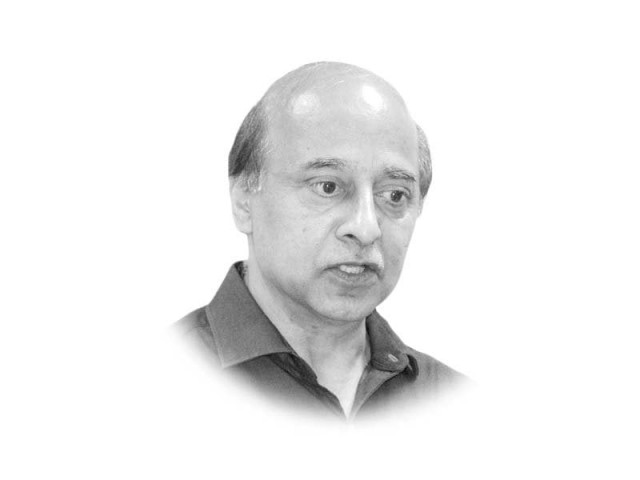What drives our irrationality?
Our rulers need to raise internal walls of knowledge and skills backed up by real democratic governance

A brief encounter with a couple of schoolchildren in southern Punjab recently left me baffled. They study at one of the Cambridge-inspired upscale chains of schools. I had asked them about Pakistan-US-India relations and the response was as follows: the US is after Pakistan; it wants to do bad things to us; India wants to break up Pakistan. Why does it want to do so, I confronted them. They grappled with the question for a few moments and then went quiet because nobody had tutored them on ‘why others conspire against Pakistan’.
Growing curious, I probed them a little on the sources of their views and found out that not only teachers at the school but also their drivers and guards were instrumental in shaping their narrative. Clearly, the emotional, irrational clatter on 24/7 television, too, considerably coloured their views. It was not the first time I heard a partially skewed version on what other countries do or may want to do to Pakistan. In interactions even with senior students and often with college and university teachers, I have come across similar thoughts streams.
And this entails a primary question as to what breeds and feeds such narratives: the establishment, the media or the curricula? And how do these feed into the socio-political instability that Pakistan is currently going through. Is the Islamic history and Pakistan Studies they are being taught the main culprits for nurturing unreasonable thinking. Or are the collective omnipresent incompetence and failures at the state level the primary drivers of this sense of instability and uncertainty? Or probably a combination of all these?
Broadly, at the heart of Pakistan’s current predicament are two drivers: external and internal. Externally, there are the various manifestations of geo-politics and regional alignments, such as the Indo-Afghan-American strategic alliance that globally projects a particular negative image of Pakistan. Relations with India and Afghanistan, too, constitute part of the external drivers of instability – both perceived and real. This image entails multiple consequences such as travel advisories by most countries, export restrictions/sanctions and conscious politico-diplomatic isolation. All these factors play out in the national media discourse and often end up being projected as part of external conspiracies against Pakistan as a justification for internal deficiencies and failures.
This also reminds us of a rather lukewarm meeting between the Saudi monarch and President Obama during which the latter took an unusually blunt position when discussing the challenges facing the Arab/Muslim world. He told the Saudi king that his country will have to find solutions to its problems. For too long have the region’s rulers looked up to the US for this, Obama told King Salman.
Interestingly, a similar message resonated in Islamabad during a recent visit of a US dignitary where we were told that we have to stop throwing this ‘you-did-this-to-us and you-owe-us- a payback’ attitude. He also confronted the hosts by telling them that everybody here complains about the massive new US embassy compound. But why did Pakistani leaders allow its construction in the first place? Where was the oft-repeated national pride when the Americans went about constructing the new embassy, quipped the curious envoy. Why keep begging for F-16s or funds if we are only driven by national pride, he asked.
The American visitor further said that Pakistanis should now demand of their leaders to never let down national sovereignty, and if they do so, things will start changing. This appears to be a new political narrative shaping up in Western capitals: stop living in the past and forget who did what to you, reads the advice. Who stops Pakistani leaders from investing in human resources, education and health, the dignitary asked?
Pakistanis at large want the same of their ruling elite. But are the latter bothered at all? Are they ready to accord the same importance to the development of human resource as they do to mega rail and road projects?
There is no doubt about the contribution of external factors in Pakistan’s current political uncertainty or economic adversity, yet these aren’t justifications for shying away from major reforms and investments in education as a whole. China may have emerged as a bulwark against most external drivers that continue to paint Pakistan in black and grey. The CPEC may be a short-term guarantee to fight of external influences. But our rulers also need to raise internal walls of knowledge and skills backed up by real democratic governance to neutralise external drivers of instability – both perceived and real.
Published in The Express Tribune, June 1st, 2016.
Like Opinion & Editorial on Facebook, follow @ETOpEd on Twitter to receive all updates on all our daily pieces.
















COMMENTS
Comments are moderated and generally will be posted if they are on-topic and not abusive.
For more information, please see our Comments FAQ